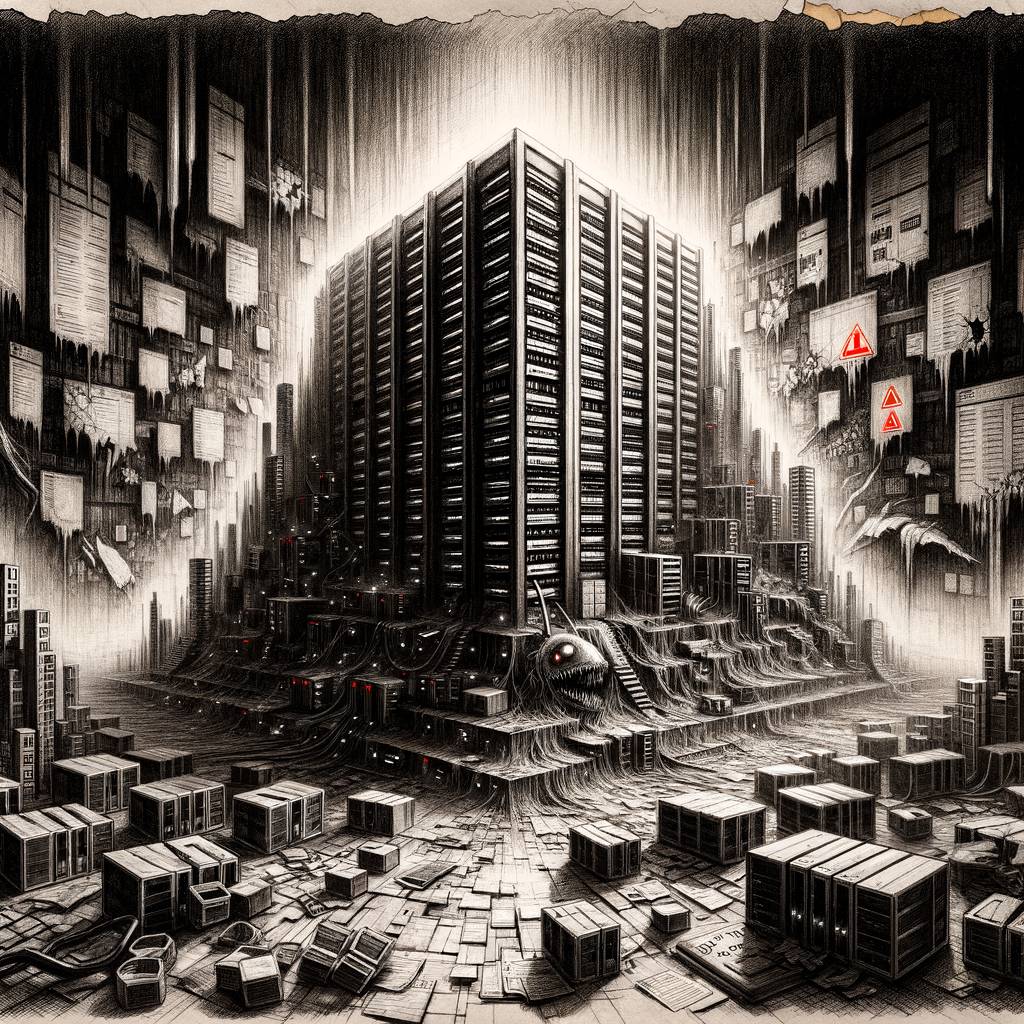Okay, deep breath, let's get this over with. In the grand act of digital self-sabotage, we've littered this site with cookies. Yep, we did that. Why? So your highness can have a 'premium' experience or whatever. These traitorous cookies hide in your browser, eagerly waiting to welcome you back like a guilty dog that's just chewed your favorite shoe. And, if that's not enough, they also tattle on which parts of our sad little corner of the web you obsess over. Feels dirty, doesn't it?
Play Ransomware Targets VMware ESXi: Linux Systems Under Siege!
Play ransomware is now targeting VMware ESXi virtual machines with a new Linux locker, Trend Micro reveals. This tactic disrupts business operations and forces victims into ransom negotiations.

Hot Take:
Looks like Play ransomware is no longer playing around, folks. They’ve leveled up their game from Windows to Linux, now targeting VMware ESXi virtual machines. It’s like they’ve traded in their Nerf guns for a full-blown arsenal. Enterprises, brace yourselves—it’s going to be a bumpy ride!
Key Points:
- Play ransomware now targets VMware ESXi virtual machines using a dedicated Linux locker.
- Trend Micro discovered this new variant, which evades detection and checks for ESXi environments before executing.
- Ransomware encrypts VM disk, configuration, and metadata files, adding a .PLAY extension.
- Play ransomware uses URL-shortening services from Prolific Puma to conceal malicious links.
- High-profile victims include Rackspace, City of Oakland, and Dallas County.
Play Ransomware Gets a New Toy
Play ransomware is no longer just a Windows menace. The gang has now rolled out a special Linux locker designed to wreak havoc on VMware ESXi virtual machines. It’s like they decided Windows wasn’t enough of a playground and opted for a whole new sandbox. Trend Micro, the cybersecurity company that discovered this new wrinkle, noted that the malware first checks if it’s running in an ESXi environment before kicking off its malicious activities. Sneaky, right?
The ESXi Party Crasher
This development isn’t just a minor tweak; it’s a game-changer. By targeting ESXi environments, Play ransomware is aiming for the jugular of businesses. ESXi virtual machines are the backbone of many enterprises, handling critical applications and data storage more efficiently. When these VMs go down, it’s like pulling the plug on business operations, leading to massive disruptions and outages. And let’s face it, nobody likes downtime, especially when it comes with a ransom note.
Prolific Puma Pounces
During their investigation, Trend Micro discovered that Play ransomware is collaborating with a threat actor known as Prolific Puma. No, it’s not a wildcat; it’s a cybercriminal who provides URL-shortening services to hide malicious links. Once Play ransomware is unleashed, it scans and powers off all VMs, then starts encrypting files like a kid in a candy store, adding the .PLAY extension to each file. It’s the digital equivalent of putting a “Do Not Touch” sign on everything you hold dear.
The Code That Powers Down
To power off all running VMware ESXi VMs and get down to the business of encryption, the ransomware uses a specific command. If you’re a tech geek, you might find this interesting:
/bin/sh -c “for vmid in $(vim-cmd vmsvc/getallvms | grep -v Vmid | awk ‘{print $1}’); do vim-cmd vmsvc/power.off $vmid; done”
It’s like a dark magic spell that turns off your devices before locking them up. And to add insult to injury, Play ransomware drops a ransom note in the VM’s root directory, which pops up in the ESXi client’s login portal and the console after a reboot. It’s as if they’re saying, “Surprise! Pay up or else.”
Not Their First Rodeo
Play ransomware first hit the scene in June 2022, and they’ve been causing headaches ever since. Their modus operandi involves stealing sensitive documents and using them in double-extortion attacks. High-profile victims like Rackspace, the City of Oakland, and the Belgian city of Antwerp can attest to the chaos this gang can unleash. And let’s not forget the FBI, CISA, and the Australian Cyber Security Centre have all warned about these guys. Around 300 organizations have felt their wrath until October 2023.
Stay Safe, Stay Updated
So, what’s a business to do in the face of such a formidable foe? The experts have some advice: activate multifactor authentication wherever possible, maintain offline backups, implement a recovery plan, and keep all your software up to date. It’s like putting on a suit of armor before heading into battle. You might still get hit, but at least you’ll have some protection.

